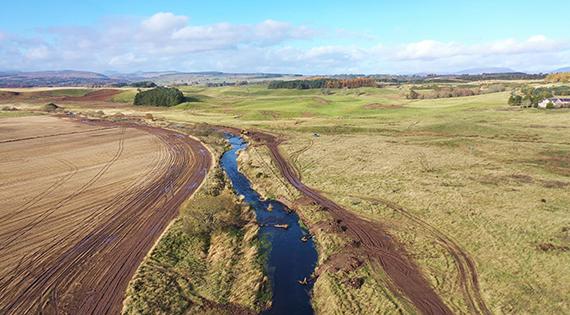Europe's environment is in an alarming state from nature loss and climate change. This in turn threatens human wellbeing and economic prosperity. Transformative change is needed across society to tackle these crises. The UK Centre for Ecology & Hydrology (UKCEH) is part of the EU-funded MERLIN project which will focus on large-scale, innovative ecosystem restoration using nature-based solutions as one of the keys to driving societal change.
MERLIN stands for Mainstreaming Ecological Restoration of freshwater-related ecosystems in a Landscape context: INnovation, upscaling and transformation. The MERLIN project is committed to transformative ecosystem restoration, bringing nature-based solutions into the mainstream for urgent, systemic change of society. Freshwaters (floodplains, peatlands, lakes and rivers) play an important role - their restoration has great potential to benefit biodiversity and combat climate change, while being beneficial to the economy and society.
The overall project will focus on different sectors (agriculture, water supply, hydropower, navigation, insurance) to achieve much greater upscaling of nature-based solutions to restore freshwater and wetland biodiversity and in so doing enhance the services they provide. These include climate services (Carbon sequestration and reduced greenhouse gas emissions), climate resilience (to floods and droughts) and wider European Green Deal goals on green growth, inclusion and health and wellbeing.
MERLIN will:
- Demonstrate the most successful European case studies of freshwater and wetland restoration and let future restoration approaches learn from them.
- Focus on peatland restoration (for carbon sequestration), floodplain and riparian restoration (for flood mitigation and transformative carbon actions) and river restoration (for restoring free-flow for fish migration).



